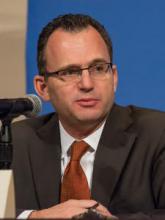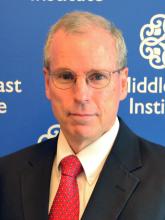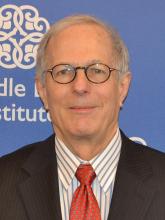In this week's Monday Briefing, MEI experts Robert S. Ford, Paul Salem, Alex Vatanka, and David Mack provide analysis on recent events including the ceasefire agreement in Syria, Iran's elections, and how the United States should respond to the growing threat of ISIS in Libya.
On the Syria Ceasefire
Robert S. Ford
Senior Fellow
-
The positives: the cessation of hostilities has reduced fighting more than the attempts by the Arab League in 2011 and the United Nations in 2012. This should be a source of hope. The Syrian government has also allowed new humanitarian aid deliveries, such as at Muademiyah, outside of Damascus. This too should be a cause for hope. In the days ahead, real progress would be establishment of permanently agreed humanitarian aid corridors respected by the Syrian government and the rebels both, as well as the Russian air force.
-
The negatives: there was intense fighting in Hama province town of Harbinafsah between the Syrian army and the Jaish al-Islam and allied fighting units, according to opposition news sources on February 28. Similarly, the opposition claimed, with video reports backing up their claims, that the regime bombed the town of al-Marj in the eastern Ghouta, also an area controlled by the Jaish al-Islam. The opposition even claimed the Syrian government used some kind of chemical weapon on February 28. The Syrian government has for years tried to recapture eastern Ghouta, including by an infamous 2013 sarin gas attack, and last week it claimed that Jaish al-Islam positions in Ghouta would not be covered by the ceasefire.
-
What to do about Jabhat al-Nusra? In many locales, such as Hama province, Jabhat al-Nusra fighters who are outside the agreement are located very near other rebel groups who are included in the agreement. Whether the Russians and Syrians can so precisely target only Nusra fighters, as called for in the agreement, is under a heavy cloud as they have yet to demonstrate such a skill. In addition, the Syrian government's regular tactic is to test a red line with isolated, small attacks and gradually escalate until its actions generate a stern foreign response. Its employing this tactic in the days ahead will not trigger a walkout by the Americans and their regional friends, but it will keep tensions high and could even prevent the opposition from rejoining peace talks. Meanwhile, there is a big question about whether rebel groups who for years have coordinated on the ground with Nusra will abstain from helping their old allies when they come under attack. This is especially problematic for rebels as the Syrian army's seizure of Nusra positions in many cases will put the moderate rebels at a comparative disadvantage on the ground.
Paul Salem
Vice President for Policy and Research

-
The current ceasefire is very unlikely to lead to a serious resumption of political negotiations, but it could conceivably lead to a longer term truce between the government and the opposition, excluding ISIS and Jabhat al-Nusra. This would be a great boon to the civilian population and would help ease the refugee and IDP situation. The United States should take advantage of key articles of the cease-fire agreement to push the situation in this direction.
-
The first mission of the cease-fire task Force chaired by the US and Russia is to “delineate the territory held by Daesh, Jabhat-al-Nusra and other terrorist organizations designated by the United Nations Security Council.” The equivalent importance of this is to delineate where these designated terrorist groups are not. The United States and its allies should move quickly to credibly review the areas under rebel control in detail; if there are pockets of Nusra or ISIS in such areas, they should be isolated and identified; all other rebel areas should be clearly declared free of U.N.-designated terrorist groups.
-
Once that is done the United States should find ways to quickly introduce neutral and credible observers into these areas to continuously confirm the initial findings, to monitor that the rebels are respecting the cease-fire with regime forces, and more importantly that the regime and allied forces do not attack rebel areas that have already been declared terrorist free.
-
In order to give this cease-fire teeth and staying power, the United States needs to make clear what actions it would take if the regime and its allies clearly violate the cease-fire against these areas. This could include political and diplomatic measures, but should ideally also include military measures ranging from providing approved rebels more ground-to-air missiles to possibly committing United States and allied air power to maintaining the cease-fire over non-terrorist rebel areas. The agreement allows that force can be used to enforce the cease-fire after "non-forcible means [are] exhausted."
-
This cease-fire possibly provides the first opportunity to de-escalate the Syrian civil war, at least between the regime and the opposition, and ease the horrific suffering of millions of Syrians. It is worth some quick follow-up diplomacy and a few long overdue robust U.S. commitments. That it would also ease the refugee flows toward neighboring countries and Europe and help focus the fight more exclusively against ISIS and Nusra are added advantages.
Key Takeaways from Iran's Elections
Alex Vatanka
Senior Fellow
-
President Hassan Rouhani will feel vindicated by the results. His ability to secure a nuclear deal and turn a page in Iran’s relations with the outside world are huge successes, but as he looks forward to re-election in 2017, he needs to focus now on the economy. The hardliners will go after his government as a ‘government by the elite for the elite.’ This is a charge that can create plenty of headaches for Rouhani unless he translates Iran’s new engagement with the world into direct socio-economic benefits for the ordinary Iranian. That’s his key challenge, and one that he has a good chance to deliver on. The reality is, as long as Rouhani stays away from sensitive political reform, he will find that an Ayatollah Ali Khamenei willing to give him considerable leeway to pursue economic restoration at home.
-
Whenever the Iranian electorate has had to choose between candidates standing for change and hardline candidates representing orthodoxy, ordinary Iranians in larger numbers choose the former.
-
The notion of political reform has radically changed. Today, people such as Rouhani and Ayatollah Ali Akbar Hashemi Rafsanjani, who have never referred to themselves as reformists, have become the hope of the broader reform movement. Genuine reformists, such as former President Mohammad Khatami, had to stay out and merely urge supporters to vote for the next best candidates in order to prevent hardliners from gaining ground at the elections. This shows how successful Khamenei has been at reducing the space available for political debate in Iran.
ISIS in Libya
David Mack
Scholar
The Obama administration is reaching a decision point on how to deal with the growth of the Islamic State’s strength in Libya. Although popular support for IS is scant in the country, Libya’s feuding militias and government institutions have been incapable of constraining a movement that is being fed by non-Libyan elements infiltrating ungoverned spaces in this vast country. The position of the United States and our European allies has been to support U.N. efforts to bring Libya’s disparate political leaders together in a Government of National Accord (GNA) that could cooperate with the international community against IS. Military planners in the United States and several key European states are far advanced in planning operations that would support a GNA determined to reassert Libyan sovereignty. Washington and others have occasionally acted unilaterally against IS targets, but to sustain such actions or more ambitious counter-terrorism operations, a Libyan national partner will eventually have to emerge. The risk is that IS might be able to launch a serious terrorist act against European targets while Libyan political leaders continue to bargain over the composition of a GNA.
The Middle East Institute (MEI) is an independent, non-partisan, non-for-profit, educational organization. It does not engage in advocacy and its scholars’ opinions are their own. MEI welcomes financial donations, but retains sole editorial control over its work and its publications reflect only the authors’ views. For a listing of MEI donors, please click here.
















